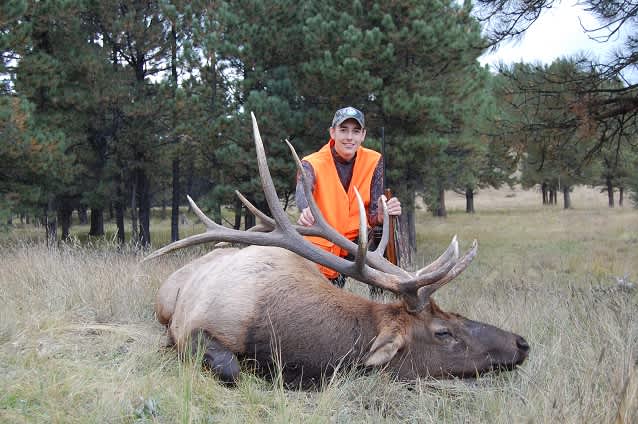Last Chance Outdoors Wishes Granted by the Catch-A-Dream Foundation
Agnieszka Spieszny 11.04.11

For one important moment of their difficult lives, the Catch-A -Dream Foundation offers youth who battle life-threatening illnesses the tranquility of the outdoors and genuine bonding time spent with their family.
That was the initial vision of Bruce Brady, who expressed his hope for such an organization only weeks before he died of cancer. He was worried by the thought that children with life-threatening illnesses wouldn’t have such opportunities after the Make-A-Wish Foundation discontinued hunting experiences in 1999 following animal rights group protests.
Martin Brunson was brought in to meet with Brady to help him articulate his vision. Brunson, who has a background in wildlife and fisheries, had an appointment to discuss the idea with Brady, but Brady didn’t live to see the appointment.
From there, Brunson and others took over Brady’s idea and played a big role in the foundation’s inception up to its status today. The foundation has sent about 400 children on their dream hunt, but even Brunson, who has been its Executive Director since Catch-A-Dream’s inception in 2000, didn’t think it would end up like this.
“Our initial vision was very small,” Brunson says. “Bruce’s initial vision, and the vision we picked up on, was to hopefully do two or three experiences for children in Mississippi each year if we could identify [the children]. We had no idea that this thing would become as large as it has, nor that we would become national or literally, North American, in scope.”
The Catch-A-Dream Foundation has expanded from helping a handful of children in Mississippi to sending dozens of children from the United States and Canada on hunting and fishing trips every year.
Brunson and his team in the organization’s only office, located on Mississippi State University’s campus, receive about 75 to 80 applications a year, of which about 80% meet the qualification requirments. Catch-A-Dream relies on the big hearts of volunteer hosts and guides. All trip logistics are planned in the foundation office and trained hosts accompany the children and families to facilitate the experience so that families have nothing to worry about except the experience itself. Guides are local outfitters at the destination of choice who donate their time and resources.

Over the years, Catch-A-Dream participants have had the opportunity to hunt whitetail deer, caribou, bear, wolf, bison, turkey and even alligator. Anglers have taken snapper, mackerel, shark, halibut, marlin, tuna, and salmon. That’s just the short list of successful harvests. Catch-A-Dream only offers hunts and fishing trips in the United States and Canada and even though inexperienced hunters are trained and aided if they are handicapped, the foundation will not put their lives in danger on a big bear (such as grizzly) hunt or other dangerous or illegal animals.
Catch-A-Dream is all about relationships. They strive to foster a better relationship between the sick children and their families, especially their siblings. What makes them a unique entity is that they foster their own relationship with former participants. Relations with Catch-A-Dream do not end when the hunt ends.
“We track their medical progress, we track their birth dates, we certainly track, unfortunately, death dates and anniversaries of those things.” Brunson says. “We know when they graduate high school, we know when they get better, when they get worse… I’ve attended high school graduations, I’ve attended a couple of weddings, and certainly a couple memorial services and everything in between.”
Participating children do not have to pay a penny out of pocket for the experience. The Catch-A-Dream Foundation works through generous donors and fund-raising events to secure all the funds necessary to supply the gear, equipment, oftentimes meals and transportation for the entire family to join their young fisher or hunter.
While raising the funds to support the program is not the overriding issue, Brunson wishes they only had more children whose lives they could affect.
“We virtually don’t think we’ve maxed out. We don’t recruit or solicit families. We get a lot of exposure in medical clinics and hospitals, but if we had one challenge, it’d be to get more word out to children.”
Anybody willing to help can do so. If you know a child who is age 18 or younger, has a life-threatening illness, is a citizen of the U.S. or Canada and has not previously taken part in another hunting experience grant then they are potentially eligible for a Catch-A-Dream experience.
For more information about the foundation, visit their homepage at http://catchadream.org/.


